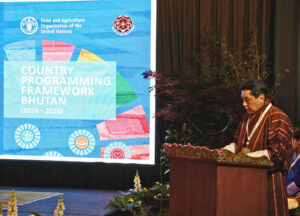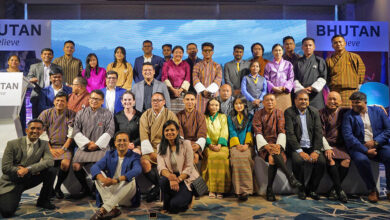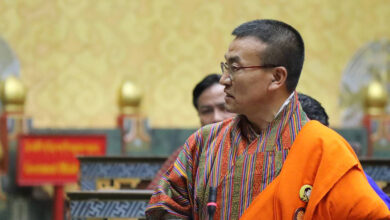Bhutan to increase agriculture sector’s contribution to USD 854 million by 2034

In line with the UN’s Food and Agriculture Organisation (FAO) Bhutan’s Country Programming Framework (CPF) for 2024 and 2028, USD 83 million is allocated within the 13th Plan.
Bhutan aims to increase the agriculture sector’s contribution to Gross Domestic Product from USD 365 million in 2022 to USD 625 million by 2029, and USD 854 million by 2034.
The FAO Bhutan’s CPF was launched on May 15 during the Bhutan Agrifood Trade and Investment Forum (BATIF) 2024 by Prime Minister Tshering Tobgay.
The CPF is a strategic document that is expected to enhance the collaborative efforts between the FAO and the government.
During the launch, the Prime Minister acknowledged the timely release of the FAO document, coinciding with the finalisation of the government’s implementation plans for the 13th Plan.
Lyonchhen said: “The FAO’s priorities in transforming the agrifood system in Bhutan, as outlined in its country programming framework, will be seamlessly integrated into the government’s 13th Plan to enhance outcomes.”
Aligned with FAO’s thematic and technical expertise, the CPF delineates four key priority areas: sustainable agrifood systems transformation, food security, safety, nutrition-sensitive and climate-smart agriculture, sustainable natural resources management, climate change mitigation and adaptation measures, and disaster risk management and preparedness, along with evidence-based agrifood systems planning and programming at national and local levels.
FAO Representative for Bhutan and Nepal, Ken Shimizu, emphasized the crucial nature of this target within the CPF to fulfil collaborative commitments and engagement, expressing confidence in its effectiveness.
He said: “Currently, FAO Bhutan has secured approximately USD 16 million, with an additional USD 42 million in the pipeline. Furthermore, approximately USD 25 million is presently under soft commitment.”
According to the report, the CPF for Bhutan was strategised through an inclusive and collaborative process, encapsulating the alignment of national priorities, regional imperatives, and global agendas.
Within the 13th Plan, the CPF aims to foster sustainable and diversified economic growth, promote decent employment, enhance quality, inclusive social services, ensure environmentally sustainable management, resilience to disaster risks, and foster vibrant government policies toward these objectives.
Furthermore, in 2021, Bhutan joined the One Country One Product (OCOP) initiative and designated quinoa as its OCOP.
The OCOP initiative addresses present and recurring challenges of hunger, food insecurity, and malnutrition, while also contributing to the development of smallholders and family farms.
“Within this framework, the sustainable value chain of each school agriculture programme can play an essential role in ensuring food security and nutrition,” the report states. “Effective use of underutilised resources, supporting farmers’ livelihoods and economic growth, while protecting the environment and biodiversity for present and future generations can be achieved.”
The document encompasses transformation of agrifood systems, sustainable natural resources management, inclusive rural transformation, and resilience building.
The UAE Declaration during the Conference of Parties (COP28) on sustainable agriculture, resilient food systems and climate action 2023, identified the need to scale up adaptation and resilient activities, promote food security and nutrition, and create an enabling environment for workers.




